
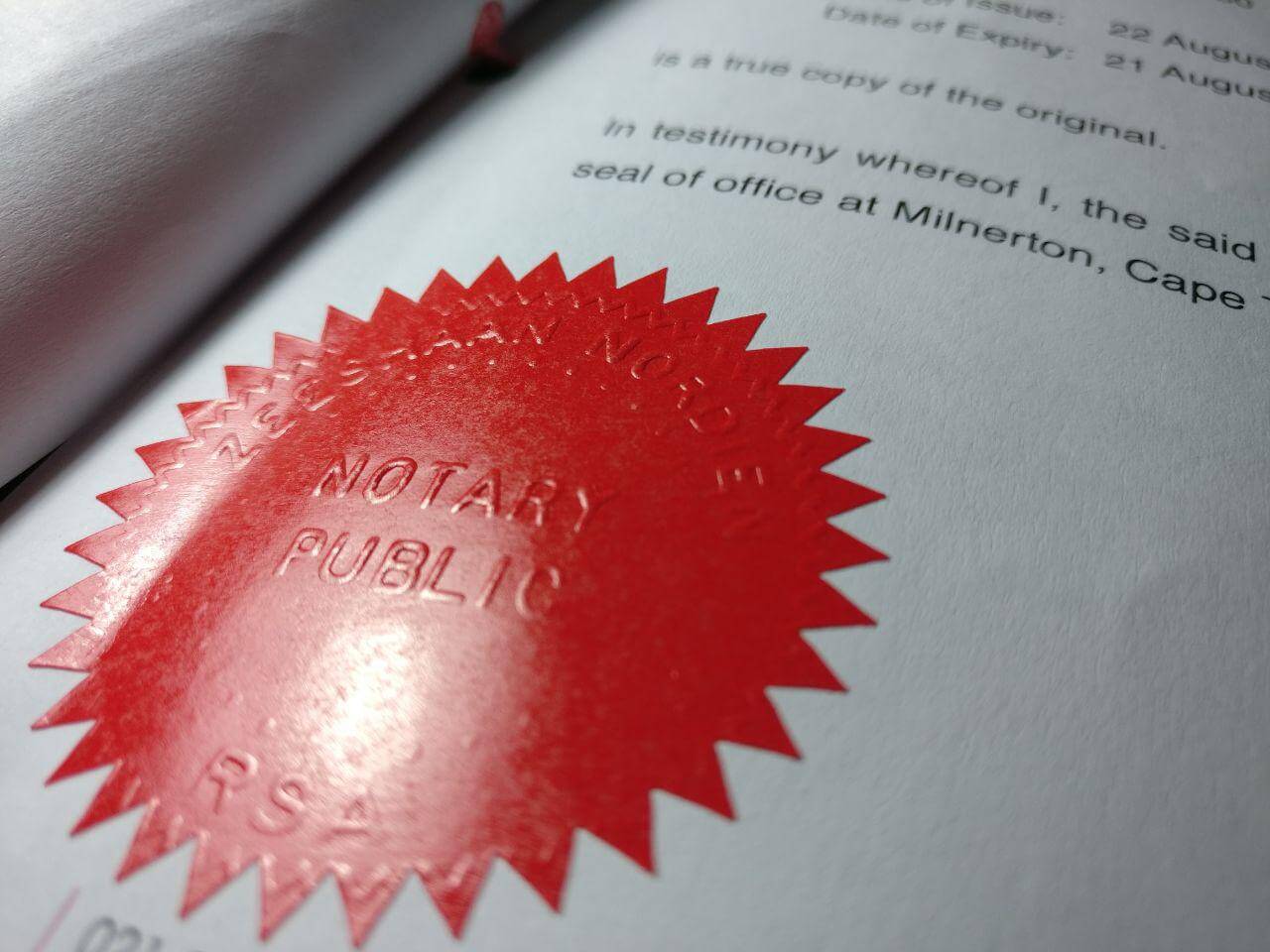
Are you a graduate of a Korean university and require having your school documents apostilled/ authenticated? I recently had my degree certificate and transcript apostilled and authenticated so I would like to share with you the steps that you need to take to have this done. Before I proceed with explaining the process, let me first enlighten you with a few things related to requesting an apostille/ certificate of authentication.
Why do you need to have your documents apostilled/ authenticated?
Whenever you need to submit public documents to another country (i.e. applying to a foreign university), you will most probably be required to have your documents verified by the country where your documents originated from in order for them to be valid for use in another country. The apostille/ certificate of authentication serves as verification that your documents are real and they were really issued by the country of their origin.
What’s the difference between an apostille and a certificate of authentication?
In principle, they are the same since they serve as a form of validation that your document is legal. The difference lies in that the apostille is required by countries that are members of the 1961 Hague Convention Treaty while the certificate of authentication is required by countries that do not participate in this convention. Moreover, the authentication process for the latter requires an additional step of Embassy legalization by the embassy of the country to which the public document will be submitted to. These two are not interchangeable, so you should know what type of validation you would need for your documents. For example, Canada does not participate in the Hague Convention, so if you submit an apostille instead of a certificate of authentication, your documents would not be accepted.
The Philippines just recently became part of the Hague Convention last May 14, 2019, and thus, documents issued by Korea would only require an apostille and no longer need to be authenticated by the Philippine embassy.
What kind of documents can be apostilled/ authenticated?
As a Pinoy student who graduated from a Korean university, the documents that you’d probably need to be apostilled/authenticated are your degree certificate (학위증서) and transcript of grades (성적 증명서). Aside from academic documents, examples of other documents that require an apostille/ certificate of authentication are personal or family documents (birth certificate, marriage certificate, etc.) and corporate documents (certificate of good standing, power of attorney, etc.).
Now that I have answered possible questions that you might have in mind about the apostille/ certificate of authentication, let me know proceed with the process of having your documents apostilled/authenticated!
Assuming that you are a Korean university graduate and would probably like your degree certificate and transcript to be apostilled/authenticated, the first thing you must do is to obtain certified true copies of these documents.
TIP: Instead of photocopying your diploma, just get certified copies of your degree certificate from your school so that you can avoid all the trouble of having your photocopies certified by your school and/or notarized.
Your university would most likely have a kiosk that prints out certified true copies of your degree certificate and transcript in your university registrar/ administration office or international affairs office. You can have them printed out and move on to the next step!
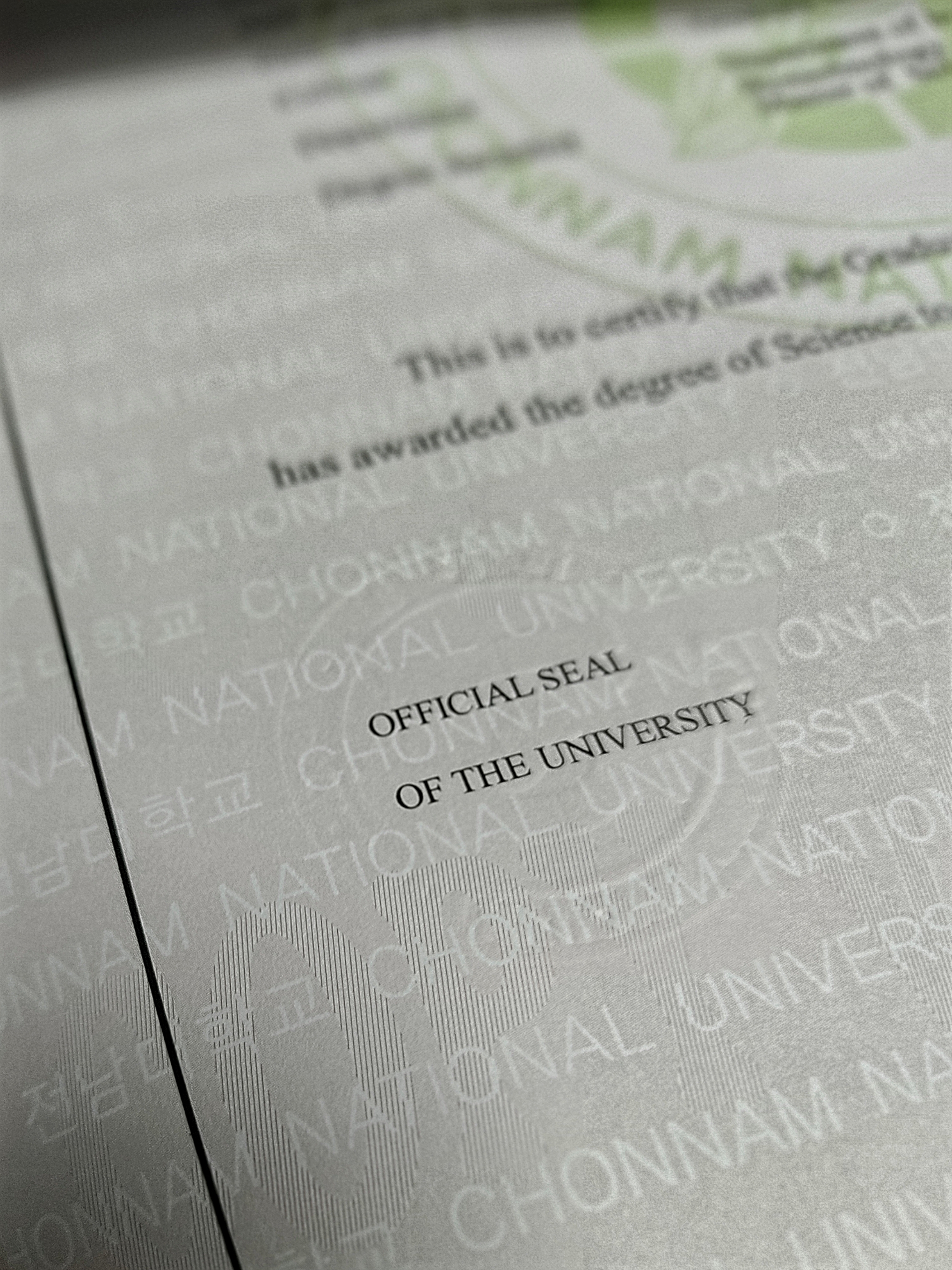
Unfortunately for those who are not in Seoul (like me!), you have to go all the way to Seoul to get an actual apostille/ certificate of authentication. Although there is an option to get an apostille and certificate of authentication online, the last time I checked, you can only have your degree certificate certified since I did not see an option for the transcript of grades. If you would like to explore the online option, you can visit this website: https://www.apostille.go.kr
For those who would like to get the actual apostille/ certificate of authentication, you have to go to the Passport/Apostille Division (6th floor) of the Waegyo Center (국민외교센터) of the Ministry of Foreign Affairs in Seocho district of Seoul. The complete address is below:
2558, Nambusunhwan-ro, Seocho-gu, Seoul 06750 (06758서울 서초구 남부순환로 2558)
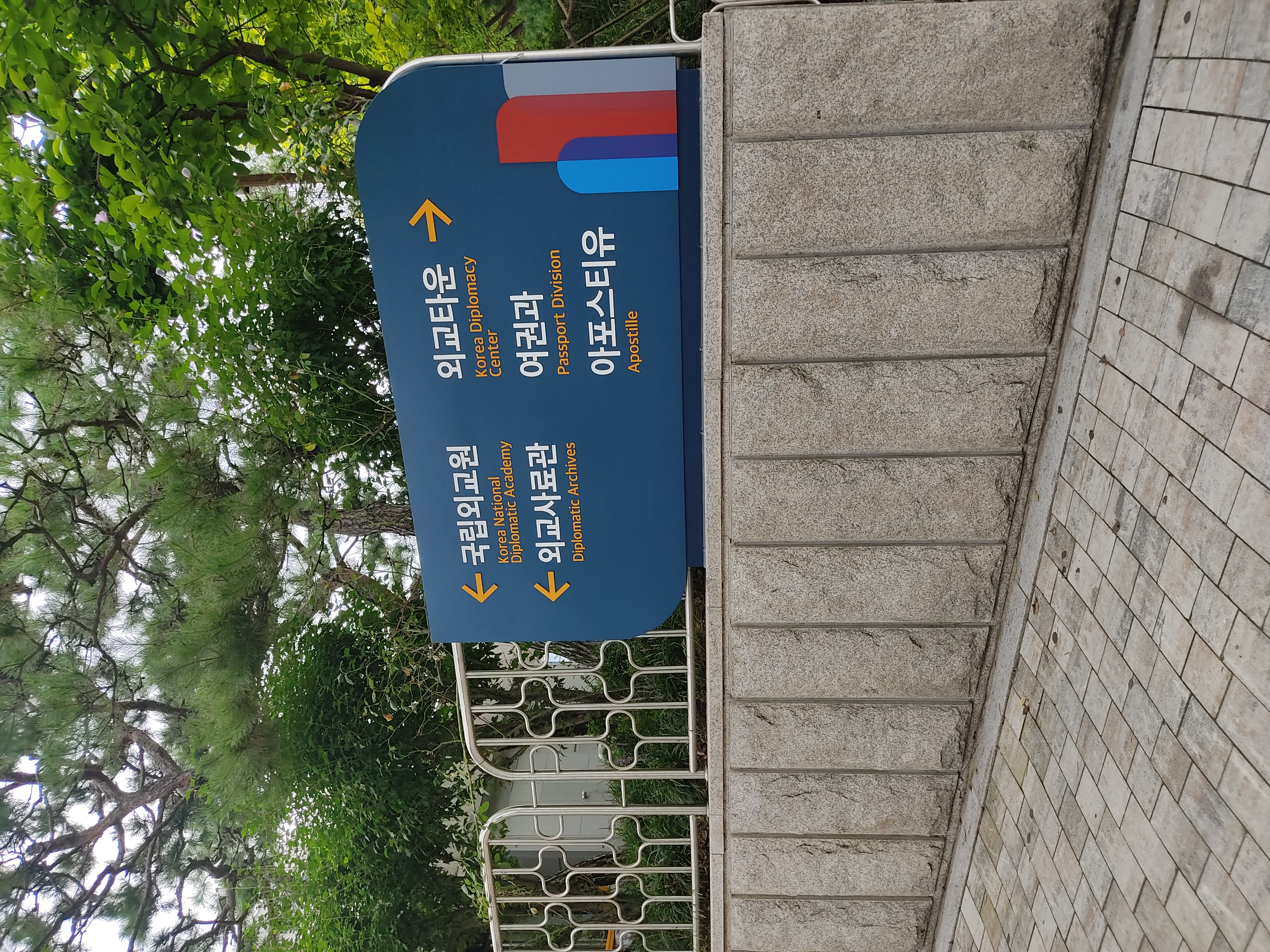
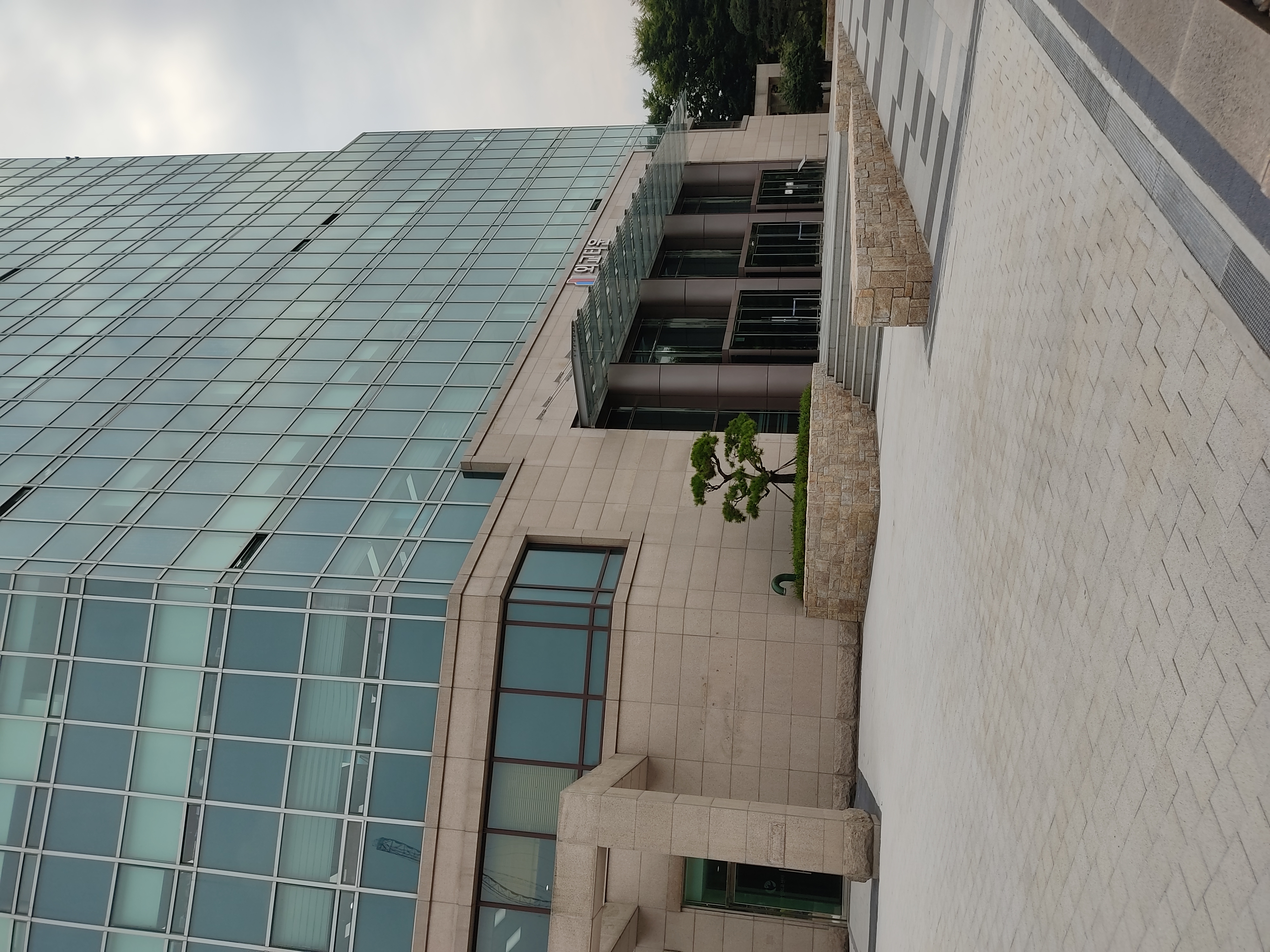
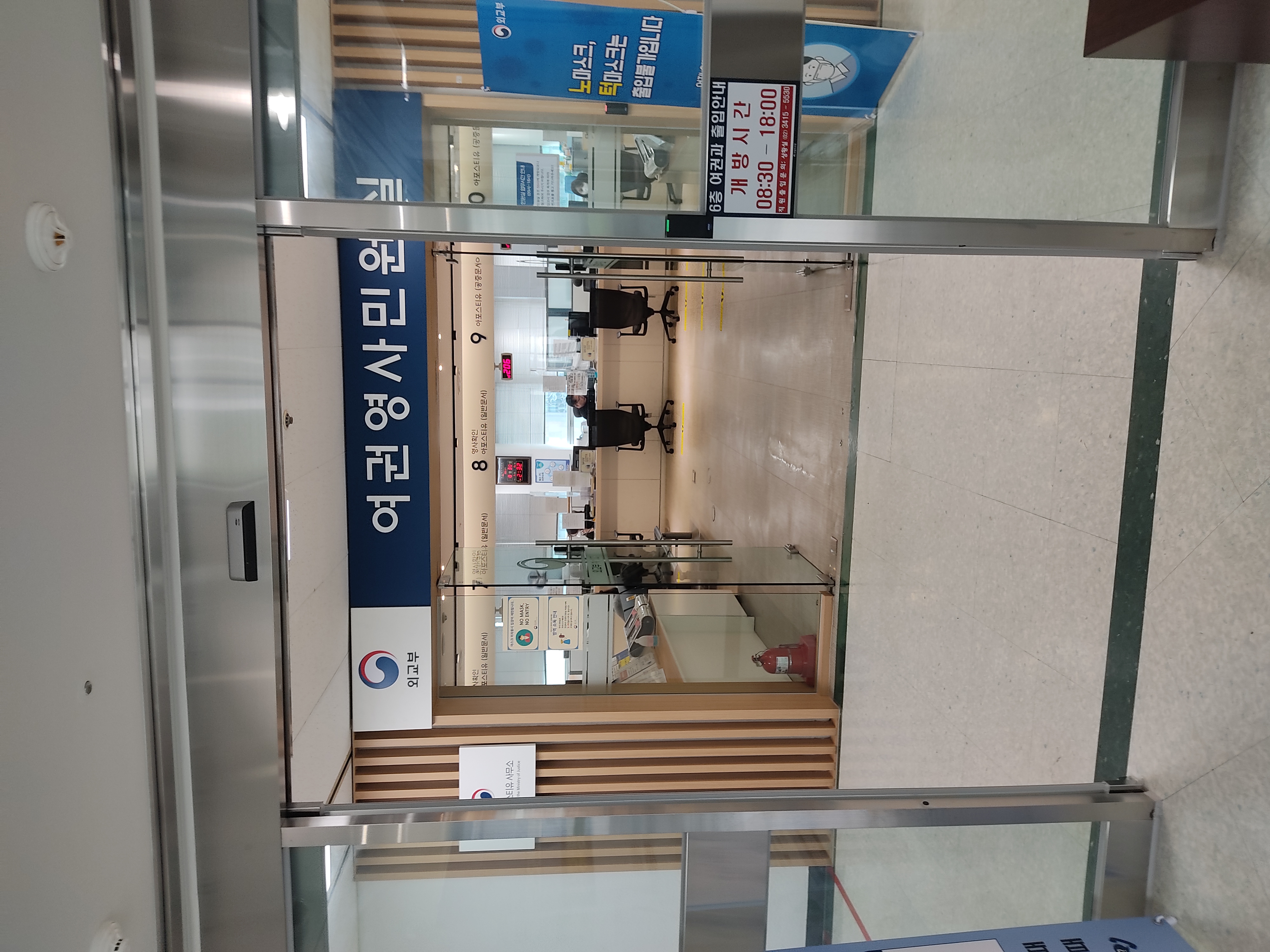
You can simply input 국민외교센터 in Kakao or Naver Maps to get the directions to go there wherever you will be coming from. Like any other government office, this office is open from 9:00 AM to 6:00 PM, Monday to Friday, but if you want to get your documents on the same day, you need to come in the morning. If you submit your documents from 2:00 PM onwards, you can only get your documents the next day. You do not need to reserve before you come; you can simply come and bring your documents.
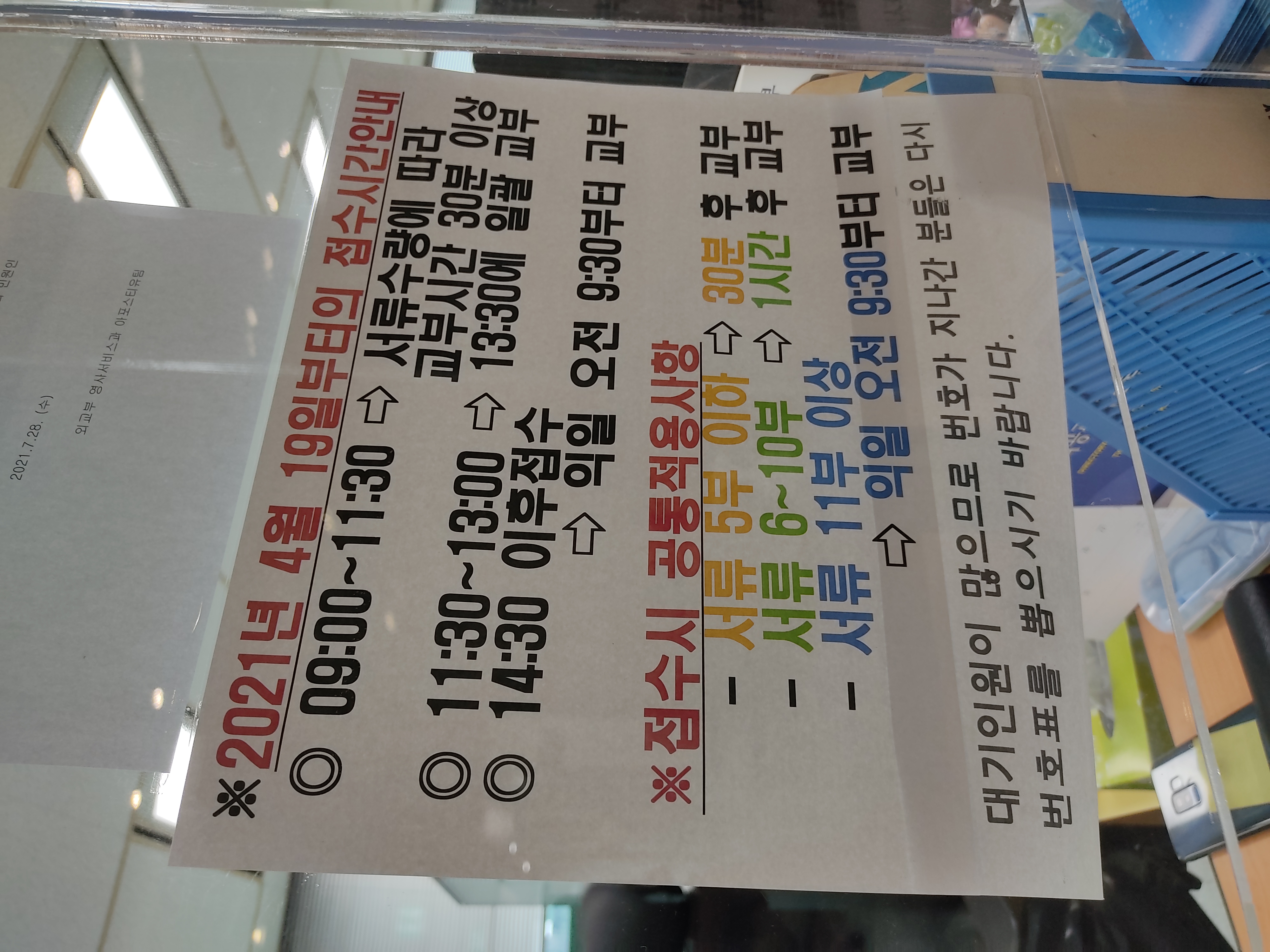
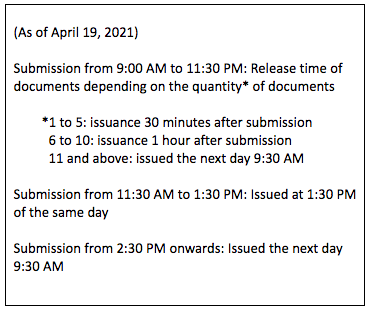
When you arrive, the first thing you should do is NOT get a number but go to the area where you can fill up a form (right side of the office entrance).
The form that you need to fill up will look something like this (It is 2 pages, back-to-back):
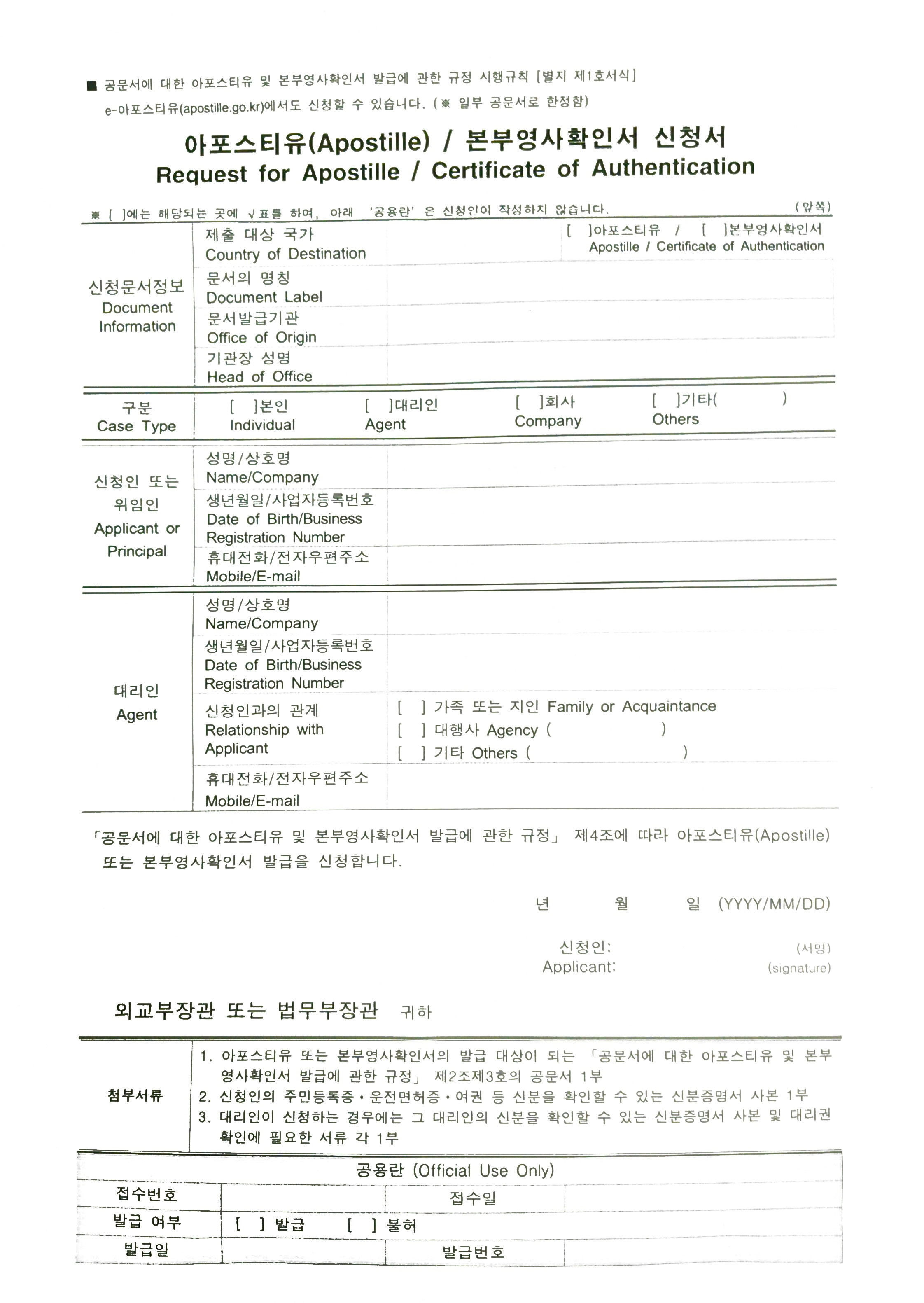
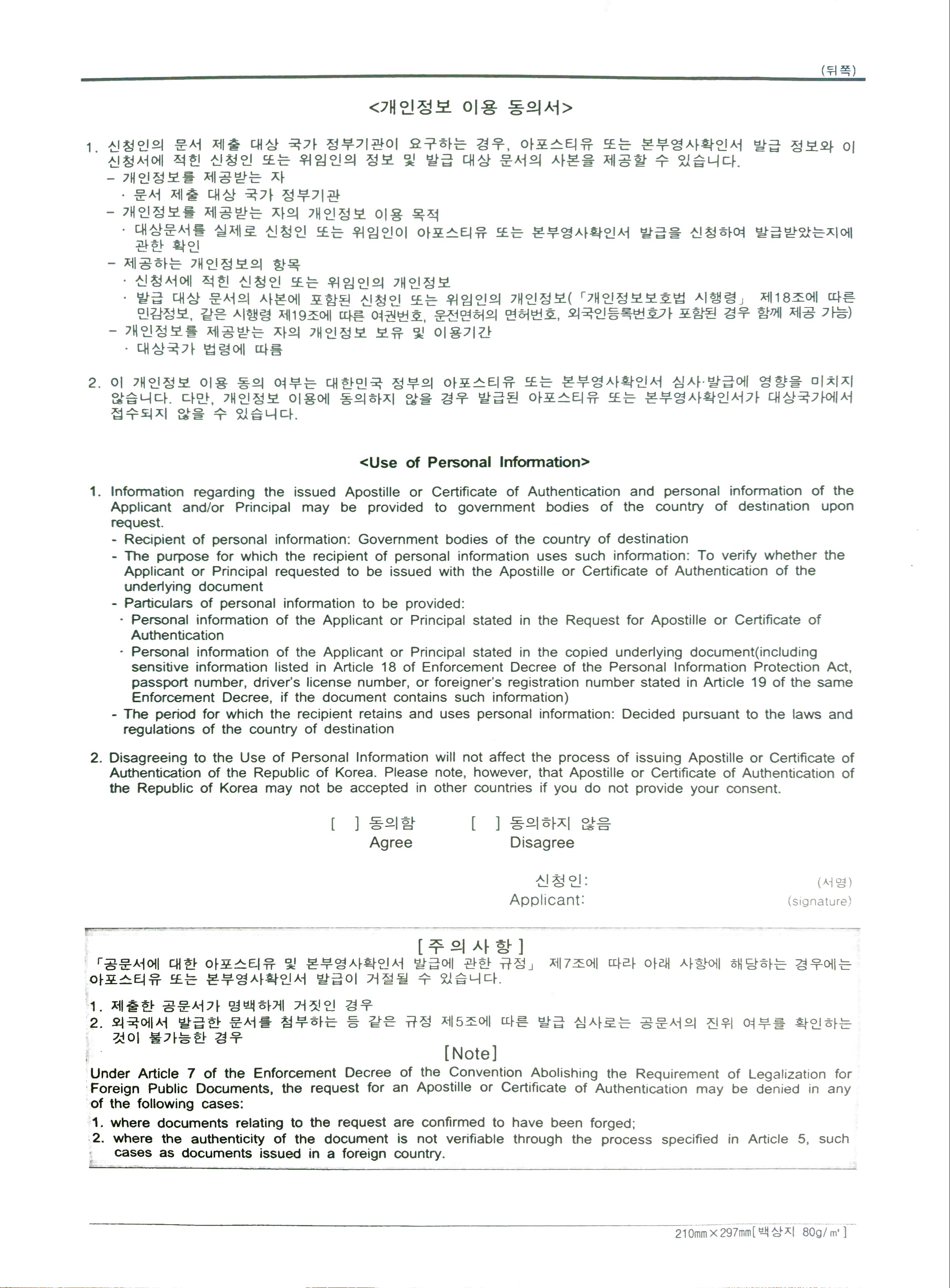
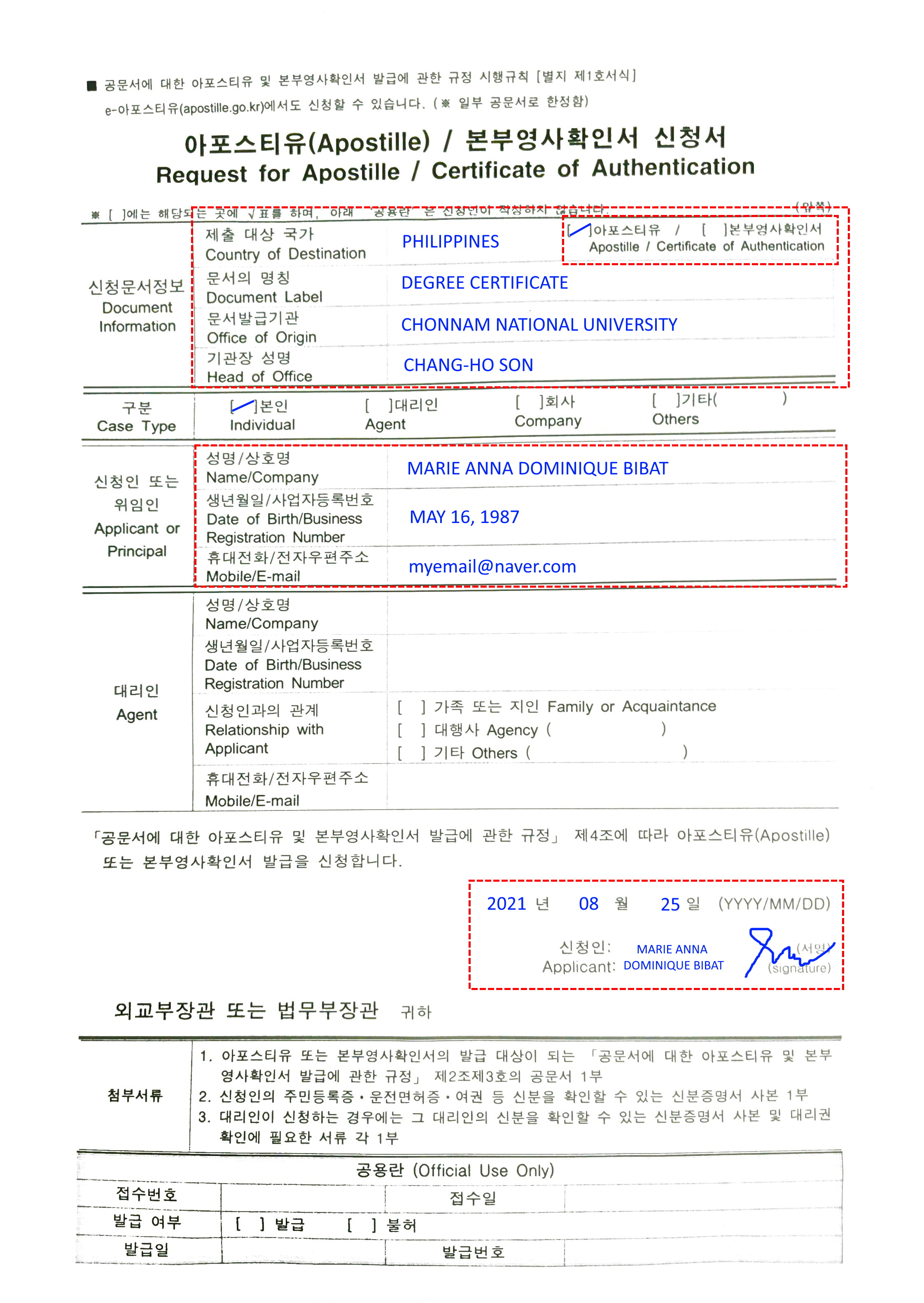
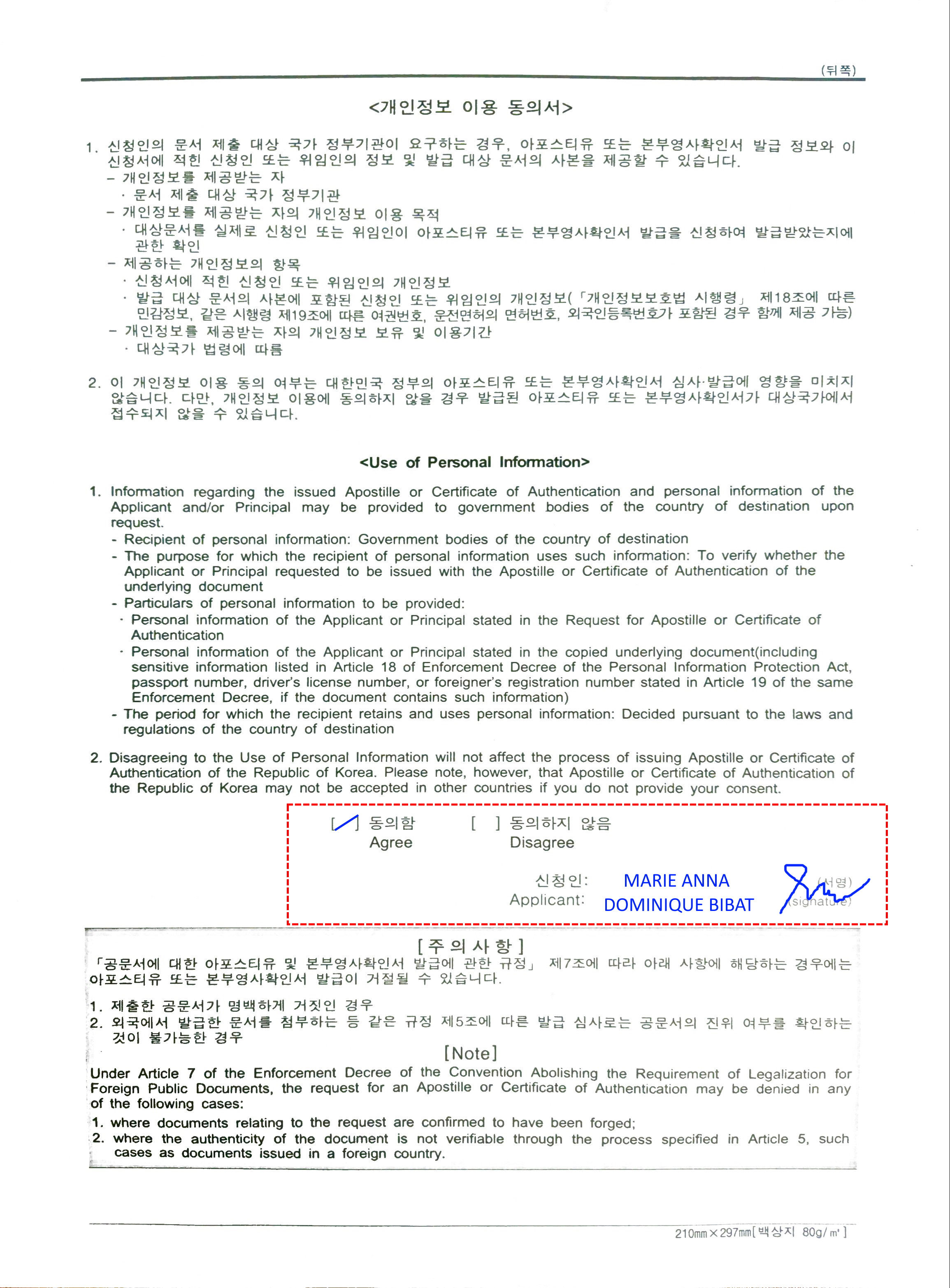
You will need to fill up one form for each type of document and for each type of document validation you are requesting. For example, you are going to request for the apostille and certificate of authentication of your degree certificate and transcript, then you need to fill up 4 forms.
After filling up the forms, you can buy the stamps required for the apostille/ certificate of authentication in advance at the last counter (counter 26). Each document requires a stamp which costs 1,000 won.
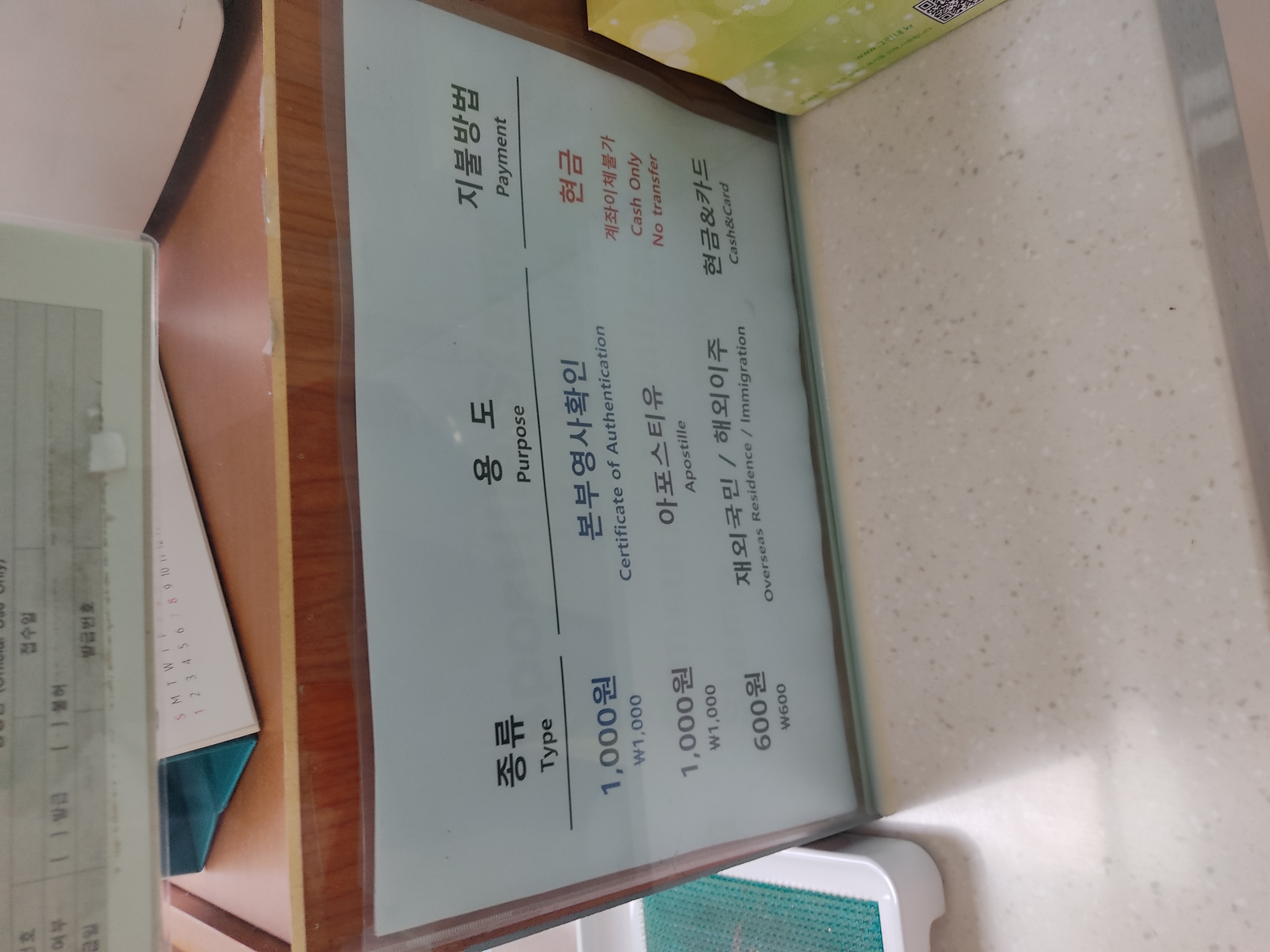
After you obtain your required stamps, you can now go back to the entrance of the office to get a number and submit your documents. There are four machines that issues a number, two on the left and two on the right. When I first came to the Apostille center, I got the number from the #2 machine. A friend told me that he was instructed to get the number from the #1 machine because his documents were original.
When your number gets called, go to the counter and submit your documents and stamps. You will be required to show an identification card (your alien registration card or passport will do). Although you already have an idea when you will receive the documents (see above), the officer will tell you which counter and when you can get the documents. I submitted by documents after 2:30 PM, so I was instructed to come the next day and retrieve my documents at the counter between counter 3 and 4, while a friend, who got his documents the same day, retrieved his documents at the same counter where he submitted his documents.
When you get back your documents, each document will have a sticker that will look something like this:
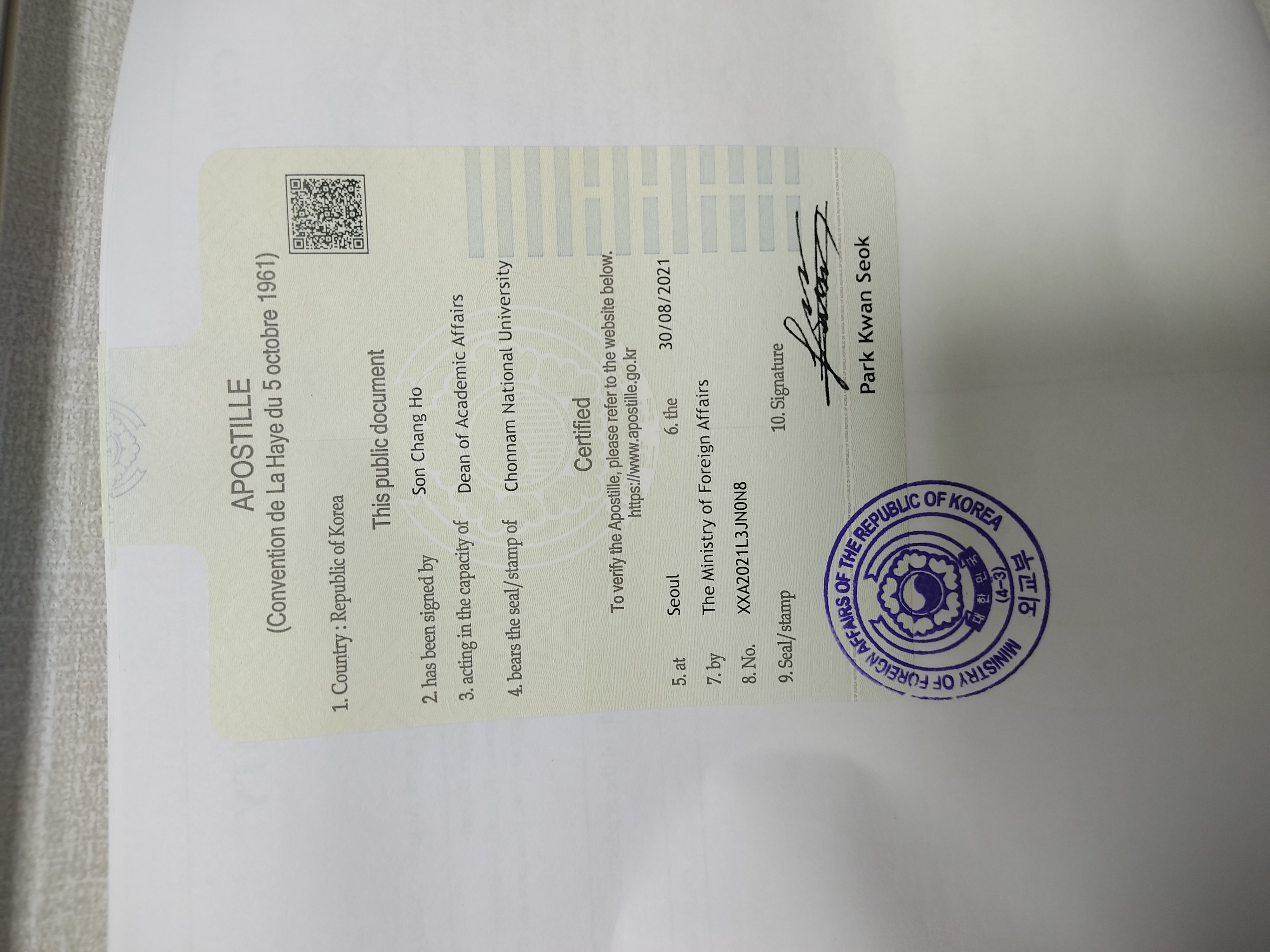
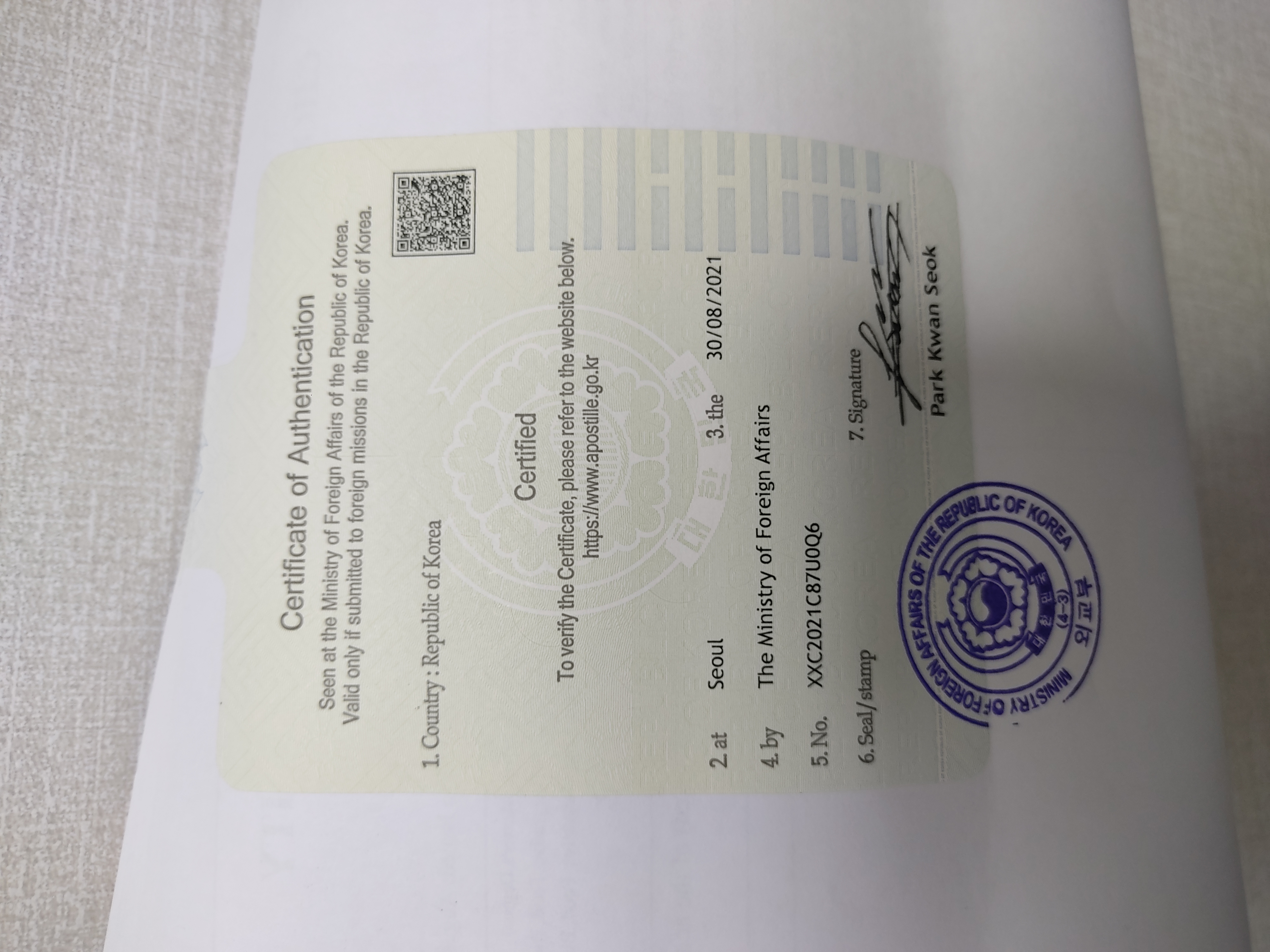
As I have mentioned earlier, to complete the process of the certificate of authentication, you would still need to go to the embassy of the country you are going to present the document for the embassy legalization.
And that’s it! The whole process is easier than I expected and the Apostille center is quite efficient. Now it is your turn and I hope that this guide has been useful for you.